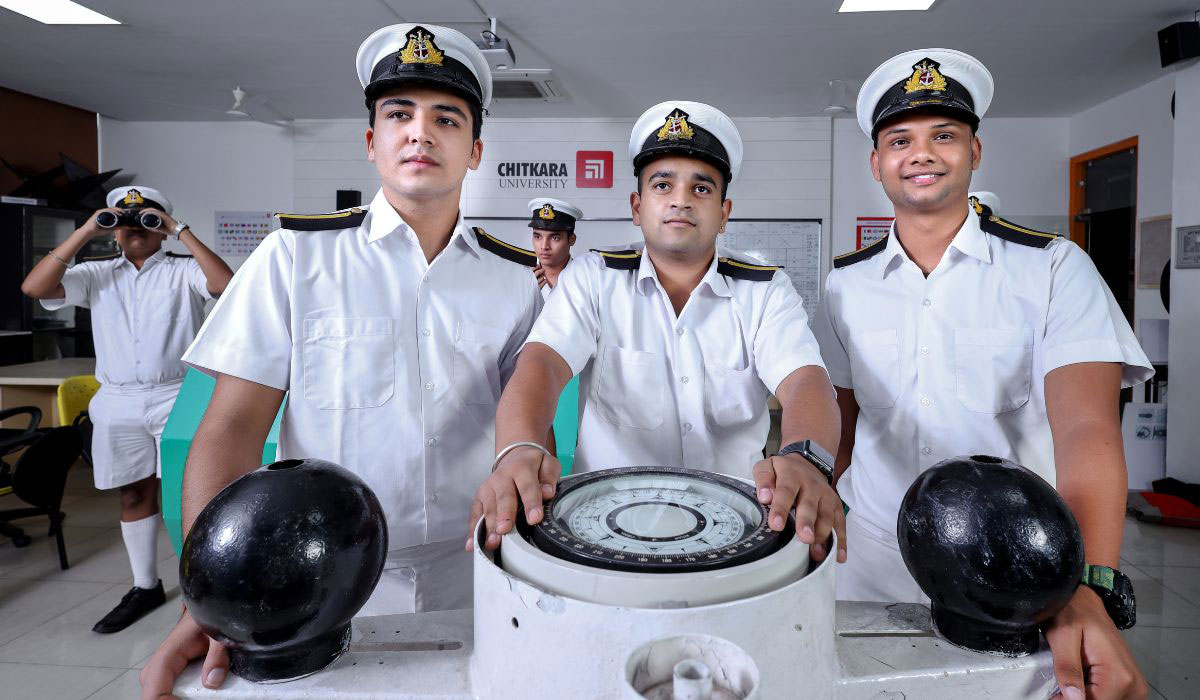The Merchant Navy, often hailed as the linchpin of global trade, presents a captivating and fulfilling career trajectory for individuals who share an unwavering passion for the vast expanse of the sea. This illustrious industry plays a pivotal role in the worldwide exchange of goods, connecting nations and fueling economic growth. However, for those harboring aspirations of navigating these maritime waters, it is imperative to comprehend the intricate hierarchy of ranks that govern the inner workings of the Merchant Navy.
This comprehensive guide serves as your compass, guiding you through the labyrinth of ranks, unveiling the multifaceted responsibilities that each rank entails, and illuminating the educational odyssey required to embark on a prosperous career within this maritime realm. The Merchant Navy is not merely a profession; it is a way of life enriched with adventure, global exploration, and a sense of duty to facilitate international commerce. As we embark on this maritime journey, we will navigate the vast ocean of opportunities, discovering how to chart a course towards a fulfilling and rewarding career in the Merchant Navy.
Why Choose a Career in the Merchant Navy?
Before embarking on a deep dive into the ranks and educational requisites of the Merchant Navy, it’s paramount to grasp why this career choice is profoundly enticing and worth considering:
Global Opportunities: The Merchant Navy extends an enticing invitation to explore the far reaches of the planet. Maritime professionals have the unique privilege of traversing the world’s oceans, navigating through diverse cultures, and experiencing the beauty of different corners of the globe. What sets this apart is that you get to embark on these global adventures while earning a living. Few careers offer the prospect of not only seeing the world but also getting paid to do so.
Financial Reward: Maritime careers are renowned for their substantial financial rewards. The salaries and benefits packages often exceed those found in many other professions. The demanding nature of the job, coupled with the responsibility for managing valuable cargo and ensuring safe voyages, is compensated with competitive remuneration. This financial stability is a significant draw for those looking to secure their future while indulging in a profession that promises much more than monetary gain.
Adventure and Challenge: Life at sea is an extraordinary blend of adventure and challenge. No two days are alike, and the unpredictable nature of the maritime environment ensures that monotony is a foreign concept. Each day presents new and unique situations, from navigating treacherous waters to dealing with the ever-changing elements. This perpetual adventure keeps the spirit invigorated and the mind engaged, making it an ideal career choice for those who thrive on challenges.
Contribution to Global Trade: The Merchant Navy is not just a career; it’s a vital cog in the wheel of international trade. Every cargo vessel that sets sail carries the hopes and aspirations of businesses and nations, transporting goods across oceans and contributing significantly to the global economy. Being part of this intricate network of trade and commerce means that your work directly impacts the lives of people worldwide. It instills a profound sense of purpose, knowing that your endeavors are integral to the functioning of the modern world.
Now, let’s navigate through the ranks in the Merchant Navy: In the Merchant Navy, the ranks and career progression for deck officers typically follow a structured hierarchy. Here is a detailed overview of the ranks, starting from the entry-level position of a deck cadet and progressing up to the highest rank of Master (Captain):
Deck Cadet:
- A deck cadet is the entry-level position for aspiring deck officers in the Merchant Navy.
- Deck cadets are usually recent graduates from maritime academies or institutes and are undergoing practical training onboard ships.
- Their responsibilities include learning navigation, seamanship, and various shipboard operations under the guidance of senior officers.
Third Officer (Third Mate):
- After completing their sea time as deck cadets and successfully passing necessary examinations, individuals are promoted to the rank of Third Officer.
- Third Officers assist senior officers in navigation, watchkeeping duties, and cargo operations.
- They are responsible for maintaining safety protocols and conducting routine inspections of the ship’s equipment.
Second Officer (Second Mate):
- Following further sea service and successful exams, Third Officers can be promoted to Second Officer.
- Second Officers primarily focus on navigation, chart corrections, and cargo-related responsibilities.
- They share in the responsibility for the safe and efficient operation of the ship.
Chief Officer (First Mate):
- The Chief Officer is the second-in-command on board and is responsible for overseeing the deck department.
- They assist the Captain in the overall management and operation of the vessel.
- Chief Officers manage cargo operations, crew assignments, and maintenance tasks.
Master (Captain):
- The Master, commonly referred to as the Captain, is the highest-ranking officer on board a merchant vessel.
- The Captain is responsible for the safe navigation and overall operation of the ship.
- They have the authority and responsibility to make critical decisions during emergencies, port operations, and adverse weather conditions.
- The Captain also ensures compliance with international maritime regulations, maintains communication with shore authorities, and manages the ship’s crew and resources.
Read this blog post: Scope for Women in Merchant Navy: Career & Job Opportunity
It’s worth noting that as officers progress through these ranks, they are required to gain sea time, complete mandatory training, and pass relevant examinations and assessments, including those conducted by maritime regulatory authorities and classification societies.
Educational Path to Maritime Careers
To embark on a career in the Merchant Navy, consider pursuing Maritime Studies courses or enrolling in a Maritime Studies program. These programs often lead to a Maritime Studies degree, providing the foundational knowledge and skills required for various ranks in the industry.
In summary, the Merchant Navy offers a plethora of career opportunities, each with its unique responsibilities and educational prerequisites. Whether you aspire to command a vessel as a captain, oversee the engine room as an engineer, or contribute to maritime cuisine as a chief cook, a maritime career is a fulfilling journey filled with adventure and global experiences. Start your voyage by exploring reputable Maritime Studies programs and setting sail toward a promising future in the Merchant Navy
The B.Sc Nautical Science program at Chitkara University is a transformative journey for those aspiring to pursue a career in the Merchant Navy. Spanning three years with an essential 12-month internship onboard merchant navy ships, this program equips students with the skills and knowledge required to thrive in the maritime industry. The curriculum blends theoretical learning with hands-on practical experience, fostering discipline, teamwork, and the right attitude for success.
Successful graduates of this program are eligible for promising careers in the Merchant Navy, including roles as Deck Cadets, Third Officers, Chief Officers, and ultimately, Masters (Captains). A career at sea offers adventure, lucrative rewards, and the opportunity to travel the world while contributing to global trade. Rigorous training and real-world experiences ensure that maritime professionals are well-prepared to handle diverse challenges, making the Merchant Navy a dynamic and fulfilling career choice






